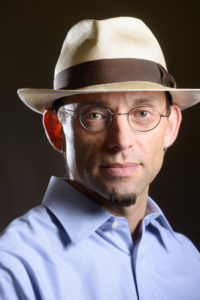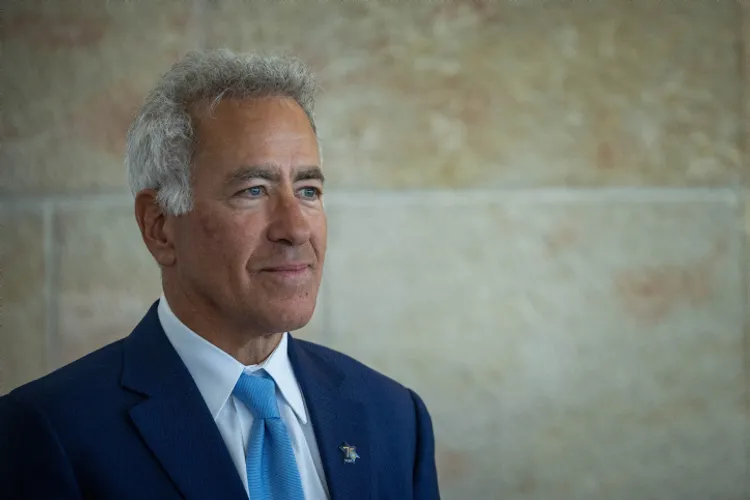
Stares Worse Than Tiny Seats for Obese Air Travelers
Stares Worse Than Tiny Seats for Obese Air Travelers
May 25, 2016
Press Releases, Social Sciences & Humanities
Feelings of shame and humiliation bother obese air passengers more than tight seat belts and tiny seats, according to a study published by Ben-Gurion University of the Negev (BGU) researchers.
Participants interviewed for the study “An Exploratory Study About Obese People’s Flight Experience,” published in the Journal of Travel Research, recounted the typical challenges they encounter while boarding, in-flight and deplaning.
“Most participants agreed that the way people stare at them during boarding and deplaning is humiliating, and at times even shameful,” says Prof. Yaniv Poria, chairman of the Department of Hotel and Tourism Management at BGU’s Guilford Glazer Faculty of Business and Management.
Prof. Poria collaborated with Jeremy Beal, a graduate of Virginia Tech’s Hospitality and Tourism Management Program. They suggest allowing obese people to board first and deplane last, and making design changes to rest rooms and seat trays which would make everyone more comfortable. Additionally, they argue for the need to offer different-sized seats.
Squeezing down aisles and into seats is particularly troublesome, the participants said, because they are unable to avoid touching other passengers. Many attempted to be first in line to board so they could easily find their seats “and disappear.”
The researchers note that crew members can respectfully and discreetly make everyone’s flight experience more comfortable by moving a passenger sitting next to an obese person to another seat. Survey participants indicated that African American female crew members seemed to be generally less judgmental and more helpful.
“We assumed that the greatest difficulties obese people faced on planes were caused by tight, confined spaces,” Prof. Poria says. “We were surprised to find that the way other people reacted to them was so ‘unpleasant’ and ‘embarrassing,’ causing them to feel universally ‘uncomfortable’ and ‘uneasy.’
“Obese people think that others regard them as individuals who intentionally decided to be disabled,” Prof. Poria explains. “Moreover, obese people feel that they are perceived as thieves, since their ‘chosen’ disability increases costs for other people. Obesity is a social disability as it prevents obese people from feeling safe in public.”
Researchers in Virginia interviewed passengers deplaning off both direct and connecting flights. The 2013 survey included 11 men and 13 women, ages 22 to 64, who had been on short (less than two hours) and long (more than two hours) flights. Sixteen of the 24 passengers self-identified as obese, with a body mass index of 30 or above. Eight considered themselves morbidly obese.
Y. Poria, J. Beal, 2016. An Exploratory Study about Obese People’s Flight Experience (2016-05)
DOI:10.1177/0047287516643416
ABOUT AMERICANS FOR BEN-GURION UNIVERSITY
By supporting a world-class academic institution that not only nurtures the Negev, but also shares its expertise locally and globally, Americans for Ben-Gurion University engages a community of Americans who are committed to improving the world. David Ben-Gurion envisioned that Israel’s future would be forged in the Negev. The cutting-edge research carried out at Ben-Gurion University drives that vision by sustaining a desert Silicon Valley, with the “Stanford of the Negev” at its center. The Americans for Ben-Gurion University movement supports a 21st century unifying vision for Israel by rallying around BGU’s remarkable work and role as an apolitical beacon of light in the Negev desert.
About Ben-Gurion University of the Negev
Ben-Gurion University of the Negev embraces the endless potential we have as individuals and as a commonality to adapt and to thrive in changing environments. Inspired by our location in the desert, we aim to discover, to create, and to develop solutions to dynamic challenges, to pose questions that have yet to be asked, and to push beyond the boundaries of the commonly accepted and possible.
We are proud to be a central force for inclusion, diversity and innovation in Israel, and we strive to extend the Negev’s potential and our entrepreneurial spirit throughout the world. For example, the multi-disciplinary School for Sustainability and Climate Change at BGU leverages over 50 years of expertise on living and thriving in the desert into scalable solutions for people everywhere.
BGU at a glance:
20,000 students | 800 senior faculty | 3 campuses | 6 faculties: humanities & social sciences, health sciences, engineering sciences, natural sciences, business & management, and desert research.
For all press inquiries, please contact:
James Fattal, J Cubed Communications
516.289.1496




